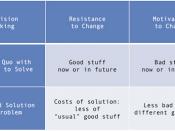Business ethics in society is not a definite position, but a difference in choice a person makes depending on their own moral belief. These choices can sway towards a negative or positive result factored by one's own moral perspective. With moral decisions, each can differ depending on what a person believes to be right or wrong. There are comparisons of these philosophies in each business making decision.
The different philosophies in business determine results in similar and different ways. Those with virtuousness are people of truth and honesty. A virtue ethicist will do what is right without any further notice of another party. With virtue, their own belief in honesty and moral rights will bleed through the problem with a positive and truthful result.
Like a virtuous person, a relativism individual makes a virtual decision, but with a greater source of information. With relativism problem solving, a person will not make a choice on their own behalf without concurring from a larger source or group.
Similar to relativism, a teleological individual; however, does not rely on a larger group. He/She will make a decision based on what is morally right if that decision produces a desired result. Both these business philosophies are determined with positive conclusions. Unlike relativism, if a person's ego was to determine the same decision, the outcome would differ, for that the person would reap what is best for their own interest. For example, "Chainsaw Al" could be considered an egoist by his short term greed for success. Using his reputation, Al made his company look like a success to gain a short wealth that consequently hurt the company. In part Al won his own self interest, but endangered a company that ended up bankrupt.(Ferrell, Fraedrich 2005) With Teleology, a person may do what is...


